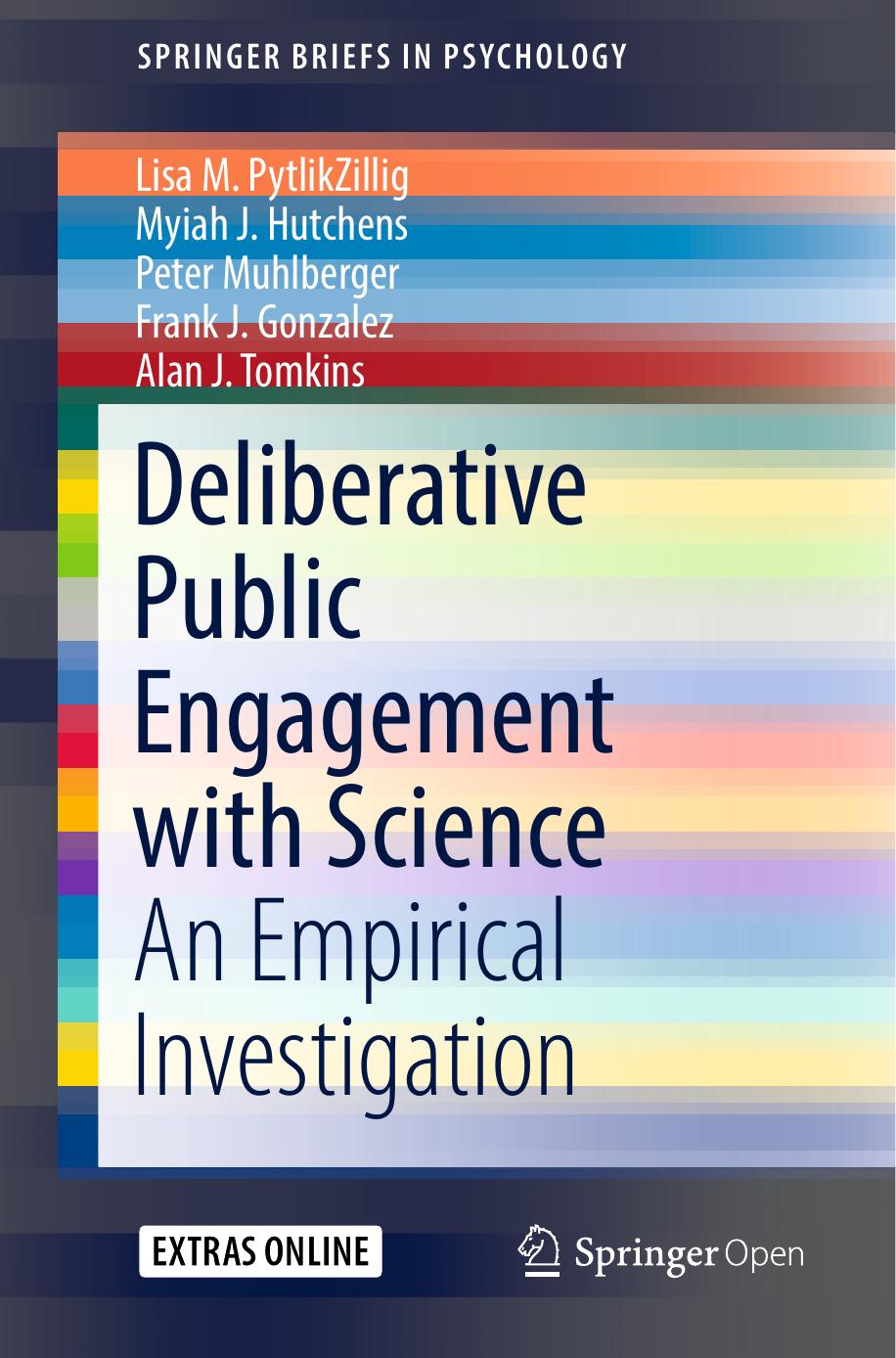Product desciption
Deliberative Public Engagement With Science Lisa M Pytlikzillig Myiah J Hutchens Peter Muhlberger Frank J Gonzalez Alan J Tomkins by Lisa M. Pytlikzillig & Myiah J. Hutchens & Peter Muhlberger & Frank J. Gonzalez & Alan J. Tomkins instant download after payment.
This compact open access reference delves beyond popular concepts of educated consumers and an informed public by examining the science behind deliberative engagement. Using data from four longitudinal studies, the authors assess public engagement methods in deliberative discussions of ethical, legal, and social issues concerning innovations in nanotechnology. Coverage includes the theoretical origins of the studies, forms of engagement and variations used, and in-depth details on cognitive, affective, and social components that go into the critical thinking process and forming of opinions. Not only are the findings intriguing in and of themselves, but researchers from varied fields will also find them useful in pursuing their own projects. Featured in the coverage: Since public engagement methods are widely regarded as valuable for policy input, planning purposes, and understanding societal processes, stands to have a wide audience among psychologists, researchers, academics, and policymakers, as well as professionals in the corporate sphere and the tech industries. This compact open access reference delves beyond popular concepts of educated consumers and an informed public by examining the science behind deliberative engagement. Using data from four longitudinal studies, the authors assess public engagement methods in deliberative discussions of ethical, legal, and social issues concerning innovations in nanotechnology. Coverage includes the theoretical origins of the studies, forms of engagement and variations used, and in-depth details on cognitive, affective, and social components that go into the critical thinking process and forming of opinions. Not only are the findings intriguing in and of themselves, but researchers from varied fields will also find them useful in pursuing their own projects. Featured in the coverage: Since public engagement methods are widely regarded as valuable for policy input, planning purposes, and understanding societal processes, stands to have a wide audience among psychologists, researchers, academics, and policymakers, as well as professionals in the corporate sphere and the tech industries.


